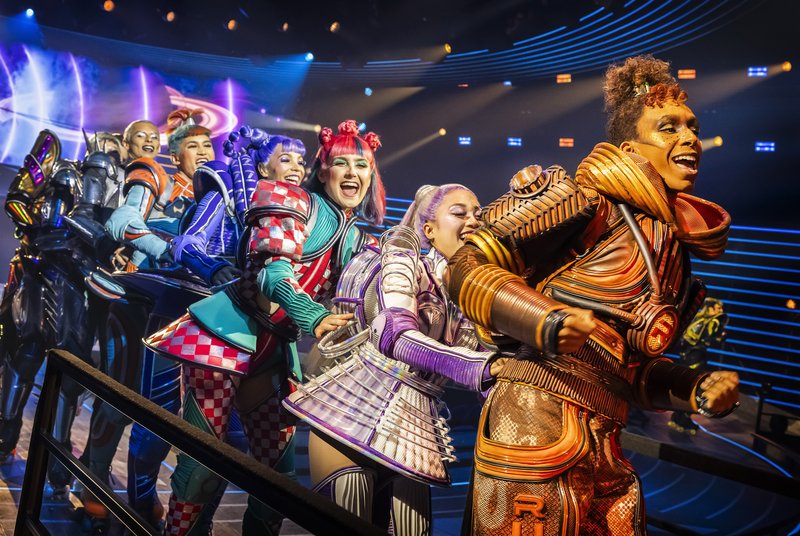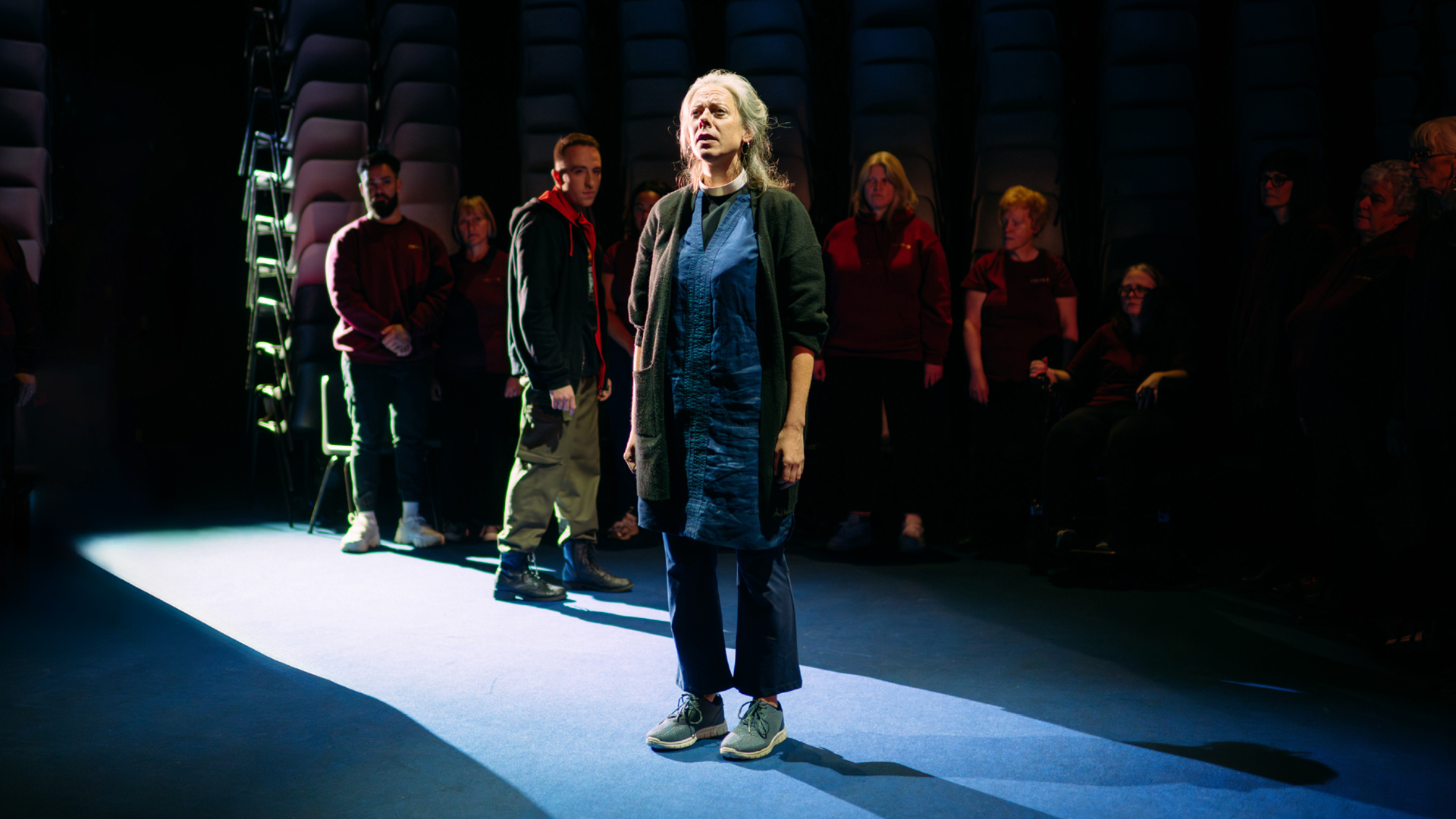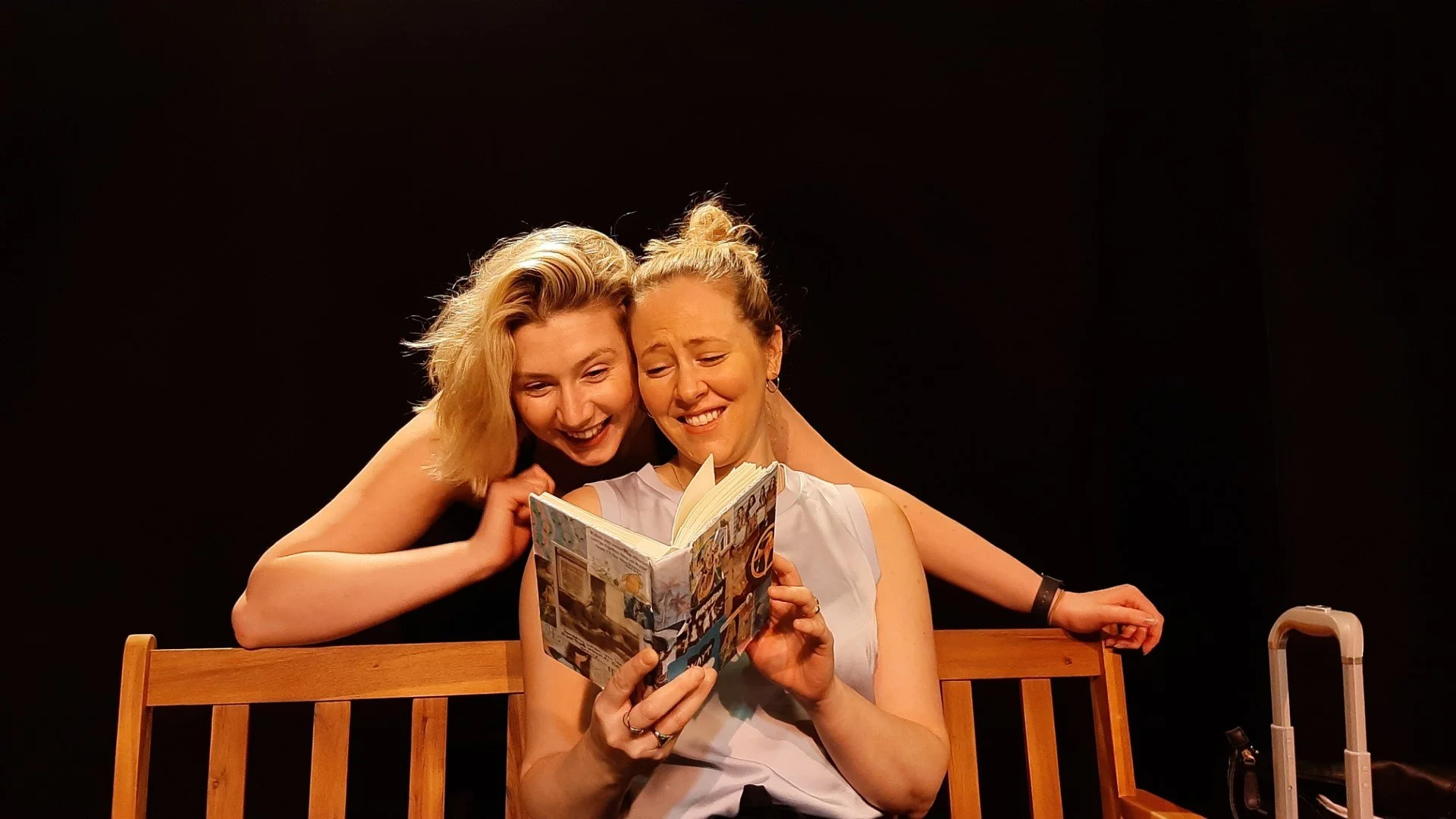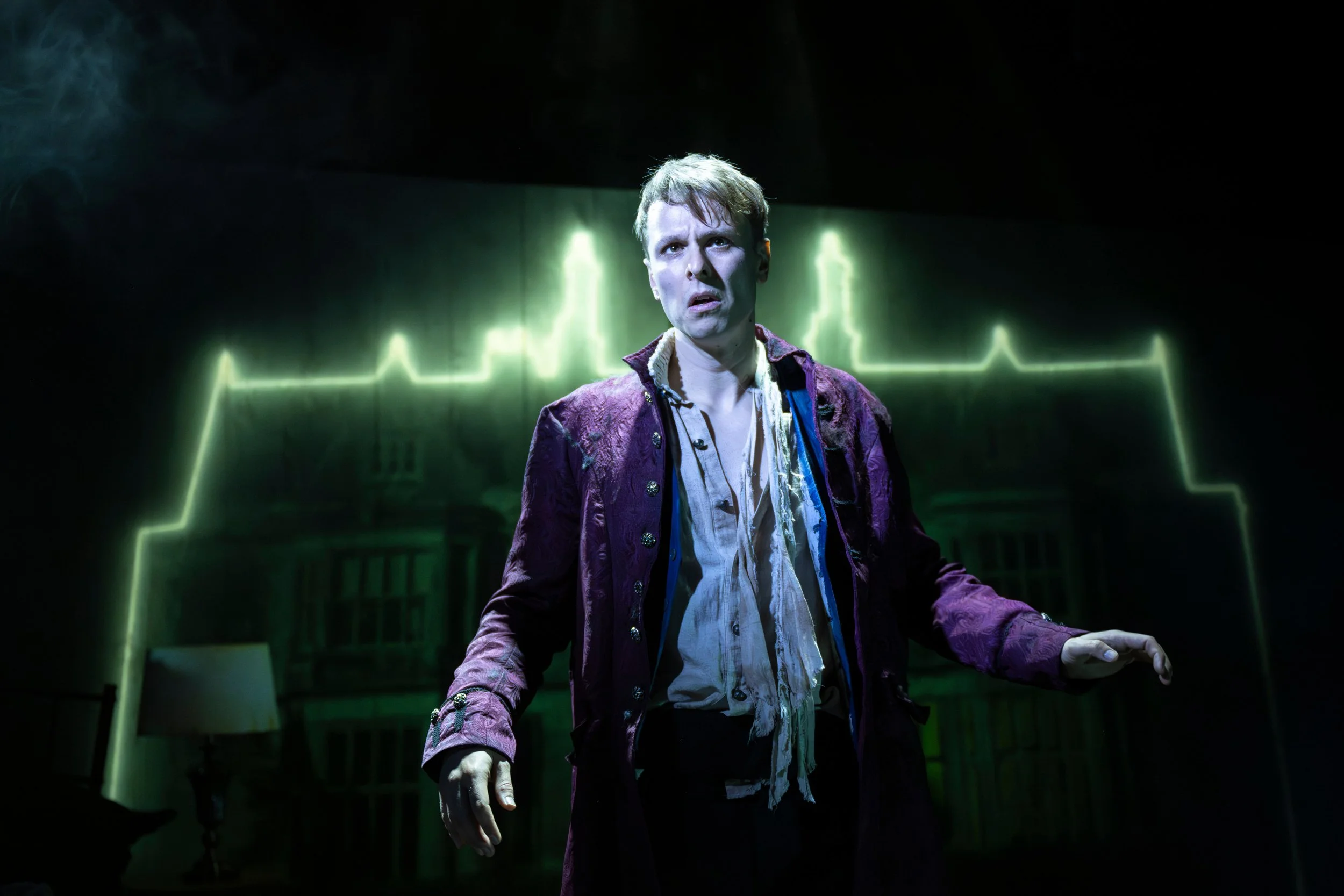Starlight Express, Troubadour Wembley Park Theatre Review
Starlight Express production image. Photo by Pamela RaithWritten by Franco Milazzo for Theatre & Tonic
Disclaimer: Gifted tickets in exchange for an honest review.
Is there a more Eighties musical than Starlight Express? Andrew Lloyd Webber’s love letter to trains rollerskates back to London with some modern updates and set in an immersive staging.
With a possible nod to Frank L Baum’s Wizard Of Oz, a young boy falls asleep and imagines that his mother and toy train set turn into powerful engines all competing to win a race fought over by four groups: steam, electric, freight and diesel. As Control, he orchestrates the action and oversees the bickering, the banter and the smouldering romance. A major change to previous productions sees another engine type (hydrogen) enter the fray in the form of new character Hydra.
The theatre has been transformed so that the front section is split into two and surrounded by the race track. Set designer Tim Hatley (Back To The Future) has settled on a deep blue electronic Tron-like ambience which is enhanced by laser-like video designs from Andrzej Goulding (Life of Pi). Seeing the actors fly around on roller skates at a decent rate, often in groups of two or more, has always been the show’s USP and a large reason for its international success. So popular was this musical in Germany was so popular that a new theatre was built to house the show in 1988 and is still running with over 19 million people visiting.
The central pairing of steam train Rusty and observation car Pearl are played by Jeevan Braich and Kayna Montecillo, both of whom make their professional debut here. Their strong performances belie their lack of stage experience and - while the chemistry isn’t quite there and their romance frankly implausible - they stand out in an oversized nineteen-strong cast that are defined as much by their outerwear than anything else.
Gabriella Slade (Six) has taken the Eighties vibe very seriously when it comes to defining the look of the characters. Many of the costumes come with fabulous shoulder pads that Krystle Carrington would have given her left kidney, while the coloured hair, mullets and bright make-up are quintessential romo. The detailed outfits for the engines are a high point, the stylings one of the few things helping us tell them apart. Hydra is given a cool green outfit to go with his eco-credentials while the Electric crew are dressed up as camp ice pixies.
The music and Richard Stilgoes’ original lyrics very much lean into the radio-friendly bands of that era. Bombastic opener “Rolling Stock” is pure Queen and the jokier, janglier numbers recall Enfield’s rockney maestros Chas & Dave. It doesn’t take much to picture Shakin’ Stevens (the biggest selling UK artist of that decade) applying his trademark vocal swagger to the second act’s “One Rock ‘N’ Roll Too Many”. The book has been mostly shorn of Eighties references (the gags at National Rail’s expense are perennials) but it is a mystery why Lloyd Webber hasn’t updated or replaced the likes of “U.N.C.O.U.P.L.E.D”, a cheap parody song that only (barely) works for those familiar with Tammy Wynette’s 1968 hit “D-I-V-O-R-C-E”.
The changes are largely beneficial. The engines with national identities have either been chopped (goodbye Brexit) or now have new names reminiscent of C-list Transformers or black market pharmaceuticals (Blue Lightning, Golden Eagle, Silver Bullet etc). The move to gender-neutral roles is to be welcomed and switching Greaseball from male to female and seeing them in a same-sex relationship adds the kind of representation sorely missing from many revivals. Even if the mantra of “it’s not a matter of if, it’s a matter of when for hydrogen” is repeated too often, seeing Rusty the steam engine win with help from Hydra (as opposed to the coal-powered Dustin in previous runs) sends a subtle and welcome green message - a rarity in modern theatre. There have been many alterations over the years but, hopefully, these should keep this lively show fresh for a while longer.
Starlight Express isn’t perfect by any means. It is weighed down by a hammy script, a dearth of memorable songs, far too many underwritten characters, love stories with all the detail and credibility of a party manifesto and kitsch rock melodies which throw up unwanted flashbacks to We Will Rock You (arguably the millennium’s worst musical so far. And, yes, I did see Opening Night). The races, though, are still as thrilling as ever and - should Lloyd Webber decide to transfer this production to his Gillian Lynne Theatre - will be even more spectacular there.
At Troubadour Wembley Park Theatre until 16 February 2025.
★ ★ ★ ★












